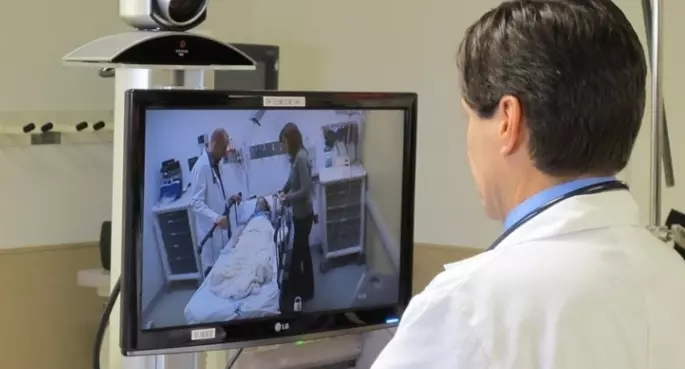Mother Jones recently featured an article discussing abortion in the modern era. We are living in a very progressive time. That’s right, our phones are now super computers, cars are driving themselves, and abortion doctors are seeing patients via teleconferencing.
The author of the Mother Jones piece attempts to make the case for “remote abortions.” She explains how it is difficult for those that make their home in rural areas to find an abortion clinic. These women are forced to drive hours to see a doctor that will prescribe them the proper pills to induce a chemical abortion.
The solution to this tedious drive, in their estimation, is telemedicine. Why drive to see a doctor when you can simply turn on your computer or smartphone and receive a consultation? Why spend the money on gas or invest the time into scheduling an in-person meeting when the Internet is at our disposal?
I believe these are legitimate questions to ask and contemplate as we enter into modern medicine, and a time where technology affords us a vast array of opportunities.
I do not dismiss the importance of advancing medicine and seeking out ways to better serve a population in need. I grew up in rural America. I understand the difficulty in finding proper care and services on a number of fronts, and I applaud the technological progress that now allows rural America to have the world at its fingertips via the Internet.
Tweet This: Telemed #Abortion is the opposite of "Medical Care," from @AndrewHWood #prolife
I would caution us though as we seek to continue our chase for fast and easy access. What harm are we bringing? Is our desire to have every service at our fingertips forcing us to neglect the lives being altered through some of these services?
“Medical Care” That’s Neither Medical Nor Care
A recent study performed over a seven-year period by the University of California-San Francisco analyzed over 19,000 abortions provided by Iowa Planned Parenthood clinics. Almost 9,000 of these chemical abortions (abortion by pill) were performed via telemedicine. The study found that there were virtually no difference, in terms of complications, between patients that saw a doctor via telemedicine or in-person. The researchers concluded that “adverse events are rare with medical [i.e. chemical] abortion, and telemedicine provision is non-inferior to in-person provision with regard to clinically significant adverse events.”
So, case closed right? Should we now implement telemedicine across the country to make abortion more accessible? Of course not!
I can hear the arguments now… Abortion is legal! We need easier access! It should also be free! These arguments neglect the lasting damage abortion has in our country. These arguments neglect that, out of the 19,000 abortions studied over that seven year period in Iowa, all 19,000 heartbeats that were present in the womb before the pills were taken were ceased and silenced after the pills were ingested. That is 19,000 lives lost in Iowa clinics alone.
[Click here to subscribe to Pregnancy Help News!]
Out of that 19,000 almost 9,000 women were required and expected to go through their abortion alone without seeing a doctor in person as they received their care via telemedicine.
Is this what progress looks like? Have we entered a time in society where we refuse to see or admit that progress drives us before heartbeats and humanity does?
Progress Toward What?
I love looking forward and being progressive in our line of work. I pray that everyone working in the life-movement would feel that way, but I hope my desire for progress never usurps my desire to love and serve people.
There is no doubt that we are in the modern era of medicine. We have access now that past generations wouldn’t have even read about in their Sci-Fi novels. I pray, though, that this access doesn’t make us greedy. Pregnant women need to be cared for properly. This proper care should be available for all women regardless of their choice to parent, adopt, or terminate. They each need our love and care.
Abortion ends one life while drastically altering the lives of those that make that choice. This should never be taken lightly regardless of what side of the political fence you may find yourself. Making abortion more accessible may make our political heartbeats flutter, but it makes actual heartbeats stop.
I anticipate this conversation continuing for years to come. We will hear from well-meaning people on both sides of the issue debating what progress should look like. I hope to be a part of that conversation and I pray that our debates would choose to recognize humanity and the people actually affected by the issues we care so deeply about.
Shame on us if we ever see young women facing unexpected pregnancies as pawns in our game of political chess.






